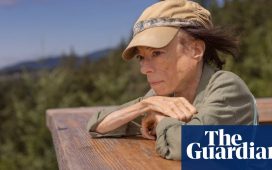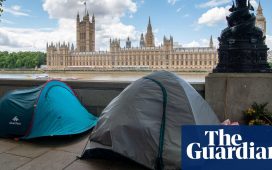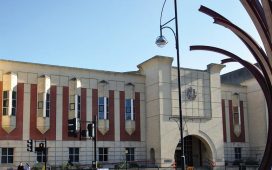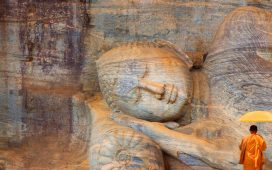Walking around a camp for displaced people in eastern Democratic Republic of the Congo this year, the Nobel peace laureate Dr Denis Mukwege was filled with shame. Around him were women, many of them survivors of rape, living in destitution with no access to clean water or to any protection.
The women had left their homes after fighting between the Congolese army and the M23 rebel group resumed in North Kivu province three years ago. Since then, aid agencies have reported an increase in sexual violence in the region. In April last year, the medical charity Médecins Sans Frontières said it was treating 48 new survivors a day among the displaced people living in camps around the city of Goma.
“The situation of women and young girls in Goma is a stain on our humanity,” the renowned gynaecologist says. “I think we should all feel ashamed to see these women abandoned.
“The more time goes by, the more atrocities we see. It’s hard to understand why people behave the way they do when it comes to sexual violence of this kind.”
Known as the “man who repairs women”, Mukwege, 69, has treated more than 80,000 survivors of sexual violence by armed groups at Panzi hospital, which he founded in Bukavu, South Kivu, in 1999.
In 2018, along with the Yazidi activist Nadia Murad, he was awarded the Nobel peace prize for his work, which he dedicated to sexual violence survivors across the world.
In his Nobel lecture, he talked about the first patients admitted to the hospital. One had been raped and shot in her genitals; another was an 18-month-old baby horrifically injured by rape.
“The macabre violence knew no limit,” he said at the time. That violence has never stopped. Every day, between five and seven new survivors of rape come through the doors of the hospital.
“Raping a woman, raping the children and hurting them, and showing it to the community, is a way of traumatising [everyone],” says Mukwege, who, with Murad, set up the Global Survivors Fund to provide reparations for victims.
“I think [sexual violence] is a formidable weapon of war, but we’re not yet doing enough to stop it,” he says. “[Sexual violence] is a red line that should not be crossed in conflict. And if it is crossed, the world should react together and be able to say ‘no, this is not acceptable.’’”
DRC has experienced three decades of conflict, with militias and groups of bandits emerging from two civil wars fought between 1996 and 2003. The east of the country has borne the brunt of the fighting. More than 100 armed groups now operate there.
Among them is a resurgent M23, which the UN says is backed by neighbouring Rwanda, a claim Kigali denies. Since 2021, about 1.7 million people have fled fighting linked to the group in North Kivu, and hundreds of thousands of people are living in overcrowded camps in Goma and the surrounding area.
Mukwege has been critical of the Congolese government’s response to the fighting, denouncing its impunity over war crimes and crimes against humanity, and the “plundering of [the country’s] natural resources”. His comments have brought him enemies and he narrowly survived an assassination attempt in 2012. For a time he was under UN protection, but that ended in 2020.
In December, he ran in the presidential election. “I wanted to take my responsibility before history,” he says. “And we tried to offer an alternative vision to say that there is no fatality, that there is the possibility of changing things.”
Mukwege took about 1% of the vote and the incumbent, Felix Tshisekedi, won a second term in office in a vote that nine opposition candidates condemned as a “sham”.
Mukwege, who has been nominated for the Aurora humanitarian prize announced next month, has campaigned around the world for survivors of gender-based violence, and last month he joined the Elders, an independent group of global leaders working for peace and human rights, founded by Nelson Mandela.
after newsletter promotion
The DRC, he feels, has been abandoned by the international community. The UN peacekeeping mission, Monusco, which has operated in DRC for more than two decades, is due to leave by the end of this year. In 2022, more than 30 people died during protests in eastern provinces calling for the force’s immediate withdrawal for its failure to protect civilians.
“Imagine, to withdraw after 20 years in the field, leaving an aggression where war crimes and crimes against humanity are committed on a daily basis. What should our feeling towards the international community be? It’s a feeling of abandonment,” he says.
“I’d like the Congolese to feel solidarity from the international community, because they’re human beings and they need that solidarity.”
Mukwege says many nations are reluctant to involve themselves in the country’s affairs for fear of harming their economic interests. DRC has vast mineral riches and is the world’s leading supplier of cobalt – a crucial component in smartphones and electric vehicles.
“It’s amazing that economic interests can take precedence over humanity. I find it sad to say but it’s as if, in the DRC, the illegal exploitation of minerals for green energy in fact spills blood,” he says.
He wants the international community to ditch “double standards” in prioritising the crises in Ukraine and Gaza over that of the DRC.
“We’re experiencing almost the same tragedy as those taking place in the Middle East and Ukraine, but nobody is talking about the DRC, or very little,” he says.
Despite this, Mukwege retains his optimism and will continue to fight for those who suffer.
“I have hope,” he says, “because I am convinced that the victims who are suffering today will be able to take their destiny into their own hands and put an end to all the injustices we are experiencing here.”











